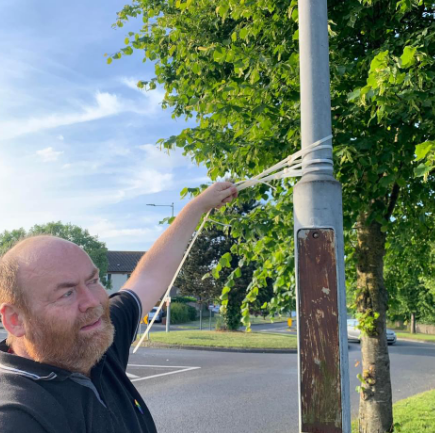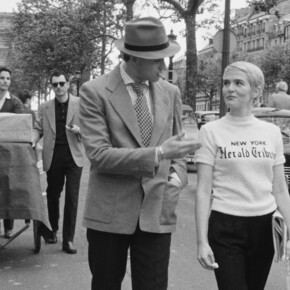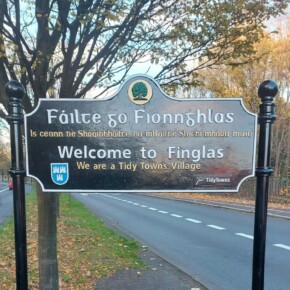SDCC votes to keep election posters
Mike Finnerty 25 Jul 2024
A motion by independent councillor Francis Timmons to ban the use of election posters in the South Dublin County Council area was defeated at the monthly meeting of the council.
Timmons topped the poll in Clondalkin in June’s local elections, being elected on the first count – all while undergoing a poster-free campaign.
Timmons argued that the single-use plastic cable ties were damaging to the environment and if South Dublin County Council wanted to be seen taking climate emergency seriously, a ban on posters was necessary.
“We are limited as a council on what we can do but this is one area we could as a council lead on,” he said.
“In this day and age with social media there are plenty of ways for us to get our name out there,” he said.
Timmons pointed to the likes of France which has designated poster areas during elections, with posters located in certain points across the community as opposed to the Irish tradition of having posters on every street corner and lamppost in a constituency.
With South Dublin County Council having by far the worst turnout out of the 4 Dublin local authorities on June 7, the argument was made that posters were the only way for people to know an election was taking place at all, and that first-time candidates would be at a disadvantage without posters.
The average turnout across all seven constituencies on South Dublin County Council in 2024 stood at 40.6%, up from 40.5% in 2019.
On Fingal County Council, which passed a motion that severely restricted where election posters can be displayed, turnout dropped from 41.2% in 2019 to 35.7% in 2024.
Fianna Fáil councillor Teresa Costello said the cable tie issue with one of “personal responsibility” by each candidate, noting that she and her team took measures to make sure that their cable ties were properly disposed of and weren’t left up following last month’s vote.
Labour councillor Joanna Tuffy said “in this election I had less resources than I ever had in an election campaign,” and noted that her constituency of Lucan has grown rapidly over the years.
She said there was “no way” that she and her team could canvass roughly 15,000 houses in the area in a single election campaign and that posters were an important way for her to get her name out.
“Poster restrictions and bans favour incumbents and favour those with money,” she noted.
“We have local elections every five years, and other countries have theirs more frequently so it’s not too much to ask posters to be put up every five years.”
People Before Profit councillor Darragh Adelaide said as a first-time councillor, he wasn’t sure he would have been elected without posters.
Adelaide, Timmons’ constituency colleague in Clondalkin, supported the motion as he had concerns of the environmental impact of the plastic cable ties.
“This is the first election I went for, and when I went to put posters up there were cable ties up on the polls that were clearly there from the last general or local elections.”
“If we are going to limit the number of posters or the areas they go in, we should have a proper debate if they benefit incumbents and if they have an impact on our local environment,” he said.
Independent councillor Ronan McMahon said that removing posters would not help the issue of turnout.
McMahon, recently re-elected in Rathfarnham-Templeogue said that posters were “the most effective way” of conveying that an election was taking place.
“I think it’s a small price to pay for democracy; it’s only for five weeks every five years.”
The motion was defeated 15 votes to 9.











